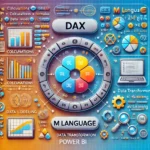In the fast-paced world of web development, test automation has become essential for ensuring the quality and efficiency of web applications. Among the various test automation tools available, Selenium vs. Cypress are two popular choices that offer distinct features and advantages. Selenium, a long-standing open-source framework, has been a go-to choice for web application testing for years, while Cypress, a more recent addition to the scene, aims to address some of the limitations of Selenium. In this blog post, we will conduct a comprehensive comparison of Selenium and Cypress to help you decide which tool best suits your testing needs.
Selenium
Selenium is a widely-used open-source test automation framework that enables testers and developers to automate browser interactions and validate web application behavior. Selenium supports multiple programming languages, including Java, Python, C#, and more, making it versatile and accessible to diverse testing teams. The Selenium WebDriver API allows users to interact with web elements, perform actions, and assert expected outcomes.
Key Features of Selenium
a. Cross-Browser Compatibility: Selenium allows testing web applications across various browsers like Chrome, Firefox, Safari, and more, ensuring consistent performance across different platforms.
b. Parallel Test Execution: Selenium Grid enables testers to execute tests simultaneously on multiple machines and browsers, reducing overall testing time.
c. Integration with CI/CD: Selenium seamlessly integrates with Continuous Integration and Continuous Deployment (CI/CD) pipelines, enabling automated testing as part of the development workflow.
https://synapsefabric.com/2023/07/22/selenium-vs-uft-unified-functional-testing-a-comprehensive-comparison-of-leading-test-automation-tools/
Use Cases for Selenium
- Web application testing across multiple browsers and platforms to ensure compatibility and consistent performance.
- Integration with various testing frameworks and tools due to its open-source nature.
Cypress
Cypress is a relatively newer test automation tool known for its simplicity, speed, and developer-friendly approach. Unlike Selenium, Cypress is specifically designed for modern web development and focuses on providing a smooth testing experience for developers. Cypress operates directly within the browser and offers a real-time view of test execution, making it easier to debug and troubleshoot issues.
Key Features of Cypress
a. Real-Time Test Execution: Cypress runs directly within the browser, allowing real-time observation and debugging of test scenarios.
b. Automatic Waiting: Cypress automatically waits for elements to become available, reducing the need for explicit waits and enhancing test stability.
c. Easy Setup: Cypress has a straightforward setup process, making it convenient for developers to get started with test automation quickly.
Use Cases for Cypress
- Testing modern web applications built using modern frameworks like React, Angular, or Vue.js.
- Projects where fast feedback and quick test execution are essential for efficient development workflows.
Comparison of Selenium vs. Cypress
Testing Approach
- Selenium: A traditional test automation framework for web application testing.
- Cypress: A modern test automation tool focused on developer-friendly testing for modern web development.
Test Execution
- Selenium: Operates outside the browser context, resulting in potential synchronization issues and slower test execution.
- Cypress: Operates within the browser context, providing real-time test execution and a more streamlined testing experience.
Waiting Mechanism
- Selenium: Requires explicit waits to ensure element availability and test stability.
- Cypress: Automatically waits for elements to appear, simplifying test code and reducing flakiness.
Both Selenium and Cypress are powerful test automation tools, each catering to different testing needs and developer preferences. If your focus is primarily on traditional web application testing and you have a team comfortable with programming languages, Selenium remains a reliable and versatile choice. On the other hand, if you’re developing modern web applications and seek a more developer-centric approach, Cypress offers a smoother and faster testing experience.
Consider your project requirements, team expertise, and the nature of your web application when making your decision. Selenium continues to be an industry-standard with a robust community, while Cypress presents a fresh perspective on test automation, tailored for modern web development. Choose the tool that best aligns with your objectives to streamline your test automation efforts and ensure the quality and reliability of your web applications.






